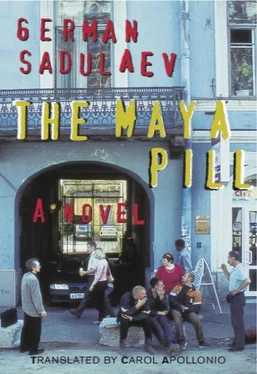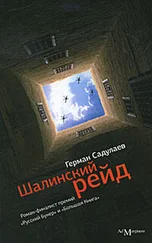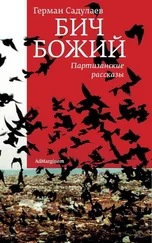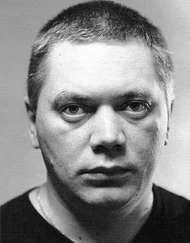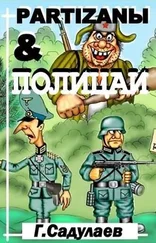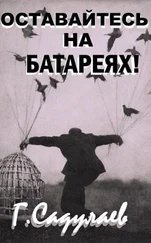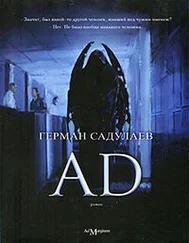Once I’d put everything away, I went into my bedroom and surveyed the familiar disorder. The sight brought a strange sense of relief. Here was something to keep me busy.
First I made the bed. Then I picked up the various objects that were strewn around the room and sorted them out: clean clothes on the cupboard shelves, shirts on hangers. I stuffed my dirty laundry into paper bags: underwear in one, the rest sorted by color.
Then I put on some music and started in on my books. I cleared them all off the shelves, dumped them onto the floor, and started dusting each one individually, then putting them back on the shelves in alphabetical order by author.
The purpose of man’s existence is to create order out of chaos. I’m convinced of it. I’m no longer plagued by the need to find the meaning of life; I know the one and only, universal, correct answer to the question of “why.” Man lives in order to create order out of chaos.
A Sisyphean task, that’s for sure. Across the universe, chaos is growing, expanding every second. This is a principle of physics that follows from the second rule of thermodynamics. The level of entropy increases in any closed system. The time shall come when the entire world will grind to a halt. The stars will go out and the galaxies will disintegrate, leaving no trace. Just dust and stones, flailing in disorder throughout the dead expanse of the cosmos.
But man, himself a chaotic fluctuation of elements, creates his own little world around himself—itself a transitory fluctuation with its own set of rules—and the cheese goes on the upper rack of the refrigerator, and ironed shirts go on hangers in the closet.
Chaos creeps into human existence, into the crannies of a man’s apartment, into the dark alleyways of his life. Chaos has its own rules. But man grabs a broom, picks up an iron, a washrag, a marker and notebook, and he sweeps out chaos, dumps it in black garbage bags, gives everything a name, numbers everything, puts everything in its special place.
And so it will be until the very last day, when this man falls on the field of this cosmic battle, dead but not defeated.
Then others will come, will wash and dress him, will tuck him in his coffin in strict accordance with their rituals, will sing the appropriate hymns, make solemn speeches, and will consign his body to earth, or fire, or water, or air—whatever their traditions require. Man is broken down into his component elements, which are no longer orderly but chaotic—and these elements now return to the cosmos, which is itself just another name for pandemonium.
The only thing that will remain of him will be memory. The Upanishads say: “When my body turns to ash, and the breath of my life flows together with the air of the Universe, O my God, remember everything I did for Thee.”
Because that memory is with God.
And it is called soul.
The soul is nothing more than God’s memory of a man who lived on this earth. And there is no other soul.
Before I know it, my eyes will melt into darkness.
Will there be something
For My God
To remember?
LIFE AFTER DEATH, CONTINUED
I went to bed content, thinking about the work I still had to do: polish the floors, do the laundry, clean all my shoes and arrange them in the entryway. I slept soundly. And that night marked the end of my Khazaria dreams.
But then the insomnia set in.
I could never sleep during the day. As long as the sun was up, I had to stay busy. I washed, cleaned, sorted, and arranged things in my little apartment. Or I’d go out and wander the streets or go to Esenin Park and walk along the path by the grandly named Okkervil “River.”
Then I started going into the city. I’d put gas in the car and go to exhibits, art shows, and symphony concerts, spend time in cafés. I developed a taste for reading in crowded places. Hoping to stretch my limited resources, I economized wherever I could. Before long I realized that the privilege of being allowed to sit all day at the twenty-four hour buffet in the book megastore on Vosstanie Square, reading without buying anything, only extended so far. You take one title off the shelf and settle down with it in the buffet area; it’s especially convenient at night when there aren’t many customers and there are lots of open spaces at the tables; it doesn’t cost anything just to sit. But occasionally a waitress will turn up at your table and ask, “Will you be ordering anything ELSE?” making it clear by her emphasis of the word “else” and her entire demeanor that if you’re sitting in her buffet reading a book that you don’t intend to buy, then you’d better order some food. Otherwise, perhaps it’s time to think about heading home, sir.
So you order another cup of coffee, a piece of cheesecake, and then some more coffee, and then something else, and ultimately by morning you’ve dropped more money into the buffet than it would have cost you to buy the book.
It’s simpler and cheaper just to take a book along and read it in an ordinary coffee shop, ideally, if there’s a place by the window. There are coffee shops in Petersburg where you can sit for two or even three hours without ordering anything. No one will bother you and no one will notice when you get up and leave.
But it’s better to go up to the counter and get a cup of hot chocolate—when I was little they used to call it cocoa—or a cappuccino. Take a seat, settle in with your book, and read as long as you want. No need to touch the cup; just let it cool down. That’s what I used to do.
If I went during the day, it was hard to find a place to sit. But I could look up from whatever I was reading to admire the flocks of young girls, fresh and dewy-eyed, who’d come from places like Barnaul to get an education in the capital. They sat in the coffee shops, smoking cigarettes and babbling endlessly. They never noticed me. Why should they? Who would be interested in a carelessly dressed, slightly overweight man with a sparse graying reddish-brown moustache and beard? No, I know, you run into all kinds of deviants. But I didn’t need anything from them, and so, by the laws of sympathetic magic, I never had any problems with the girls—didn’t make them nervous, didn’t attract them either. It was as though I simply didn’t exist in their dimension, which was filled with the aroma of Rive Gauche perfume (bought on discount with a girlfriend’s gold card), with nice-looking boys from their school and dreams of a new life—so close at hand, within their grasp: graduation, a job in a big company with potential for advancement, a nice car (some shade of green, and bought on credit, of course), and vacations in Turkey, or, alternatively, Maldives, if she’s lucky enough to catch the eye of a man of means.
Their girlish naïveté didn’t bother me, though I didn’t envy them either. And I never bothered to drink my hot chocolate. Who knows what they put in it.
When I went late at night there would be older people at the tables, sometimes couples, talking, poring over brochures and spreadsheets, or simply sitting in silence, emitting smoke.
Occasionally I would spend the whole night in a twenty-four hour coffee shop. After the nightclubs closed, the clubbers would come in, exhausted, half-awake, but not ready to give up yet. They would drink cups of hot coffee and stare at their surroundings in silence, eyes glassy.
And I would read. And not feel at all abandoned or alone.
Finally, when (or if) I went home for the night, I would undress slowly, fold my clothes carefully, turn off the light, and go to bed—as though performing some sort of a ritual, particular and prescribed. Order in all things. Nighttime is for sleeping. If a man can’t get to sleep, then he needs to just lie there in bed naked, staring blankly at the ceiling. Not violate the order of things.
Читать дальше
